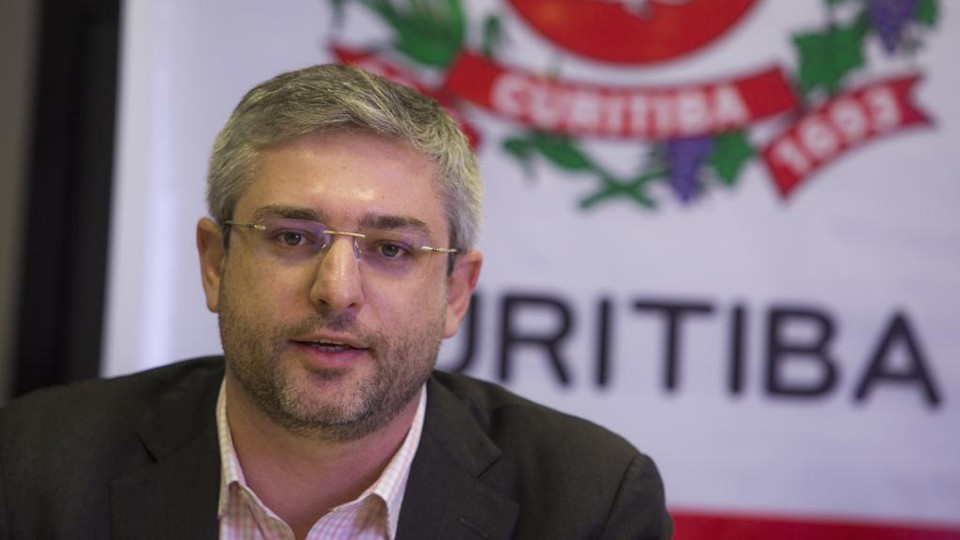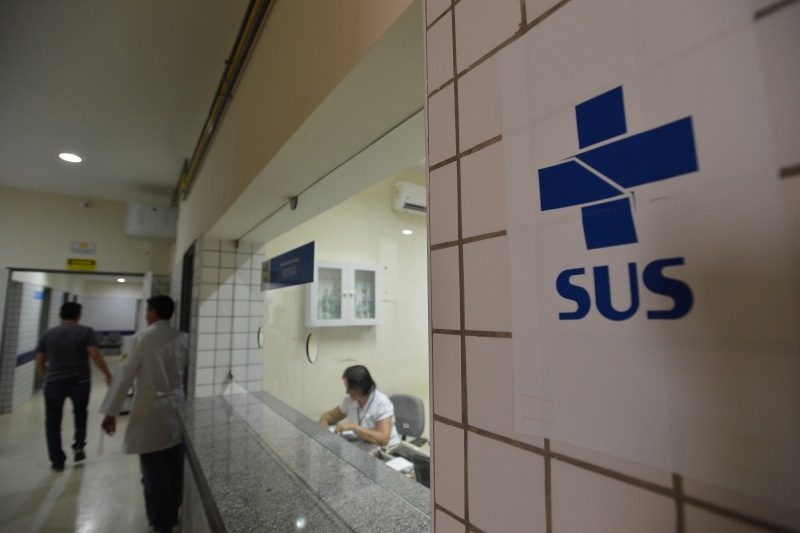RIO DE JANEIRO, BRAZIL – Adriano Massuda, 41, spares no harsh terms to describe the failures of the Bolsonaro government and part of the state administrations in tackling the greatest health crisis of the century. “A national response of the magnitude demanded by this pandemic has not been organized. And there is no excuse! We had time to prepare,” laments the Ministry of Health’s former Secretary of Science, Technology and Strategic Supplies and health management expert, recalling that the novel coronavirus emerged in Asia and took almost three months to reach Brazil.

“We are not in a worse situation precisely because we have the SUS [Unified Health System] and because Brazil has a tradition in public health programs,” says the Getúlio Vargas Foundation professor and visiting researcher at Harvard School of Public Health. The problem, Massuda says, is that this very tradition of public health is being threatened by the abundance of military officers and professionals with no experience in key positions in the current organization of the Ministry of Health. According to the professor, what’s worse is that changes in the system’s mechanisms that have been built over the past 30 years can do “damage” far beyond the pandemic.
Question. How did you assess the attempt by the Ministry of Health, overturned by the Federal Supreme Court (STF), to change the way the covid-19 figures are disclosed?
Answer: This demonstrates a growing deterioration in the Federal Government’s ability to address a threat as serious as this pandemic. We can split the answer into three periods. First, the administration of Luiz Henrique Mandetta. Despite criticism for the delay in taking measures to prepare the country, there were initiatives to alert the population to the severity of the situation.
The second, short-lived, period was under Nelson Teich. Then the Ministry virtually stopped, no longer exercising a role of national system coordination. And now the Ministry is hindering the response to the pandemic. In this third stage it is worse, with an interim minister for over a month, the attempt to withhold data, as if this were going to lessen the issue – an insane attitude that is very much the face of this government – is creating a conflict with states and municipalities.
The CONASS [National Council of Health Secretaries] published a very harsh letter, showing the state health secretaries’ positions against the alleged masking of public figures, saying the statistics are overblown by states and municipalities. This is creating a very dangerous federal conflict for the health system’s governance, which was formerly restricted to governors and the President.
Q. How do you perceive this proliferation of military personnel in the portfolio?
A. The Army is holding specialist positions when Brazil has extremely competent professionals in the field of Brazilian collective health. Few countries have the expertise we have in this sector. Such expertise does not lie in the Army. Along with the deteriorating pandemic, there may be other health issues neglected because of it.
There are countless other health programs that hinge on the Ministry’s expert coordination. What will the national cancer coordination be like? What will the national policy on HIV, blood, and haemoderivatives, and vaccines that depend on the action of the Ministry of Health be like? It is something very risky and society must be very alert. The problem is not only Covid-19.
Q. Why do you find this military presence so dangerous?
A. The extent of occupation of technical positions by the military and by unqualified political appointments in the Ministry of Health’s structure has occurred as never before since the SUS was established. Not even the worst Minister of Health has done what is being done now. There are technical areas within the Ministry of Health, crucial to the maintenance of health programs, which have already passed through different governments, of different political flags, and have never been modified, due to accrued knowledge.
There may be a process of dismantling the mechanism that has allowed the health system to work over the past 30 years that is very dangerous. The Army may be drawing upon its own responsibility to dismantle the Brazilian health system. This system is vital to ensure the health safety of our country.

Q. What structures are being modified?
A. In addition to the coordination of technical programs, changes in the structure of the Executive Secretariat of the Ministry of Health are worrisome, because this is the area that prepares the budget planning and coordinates the transfer of resources to states and municipalities through the National Health Fund. I am not the first to alert this in the press. This may entail several future problems for states and municipalities.
It immediately helps to understand the very low budget execution capacity in the pandemic, where less than one-third of the approved extraordinary resource was implemented three months after it started. The military is competent in many areas, but has no experience in managing the Brazilian health system, which is very complex. If they did, they would not be changing extremely sensitive areas as they are doing.
First, a health system should not rely on donations. This exposes a number of structural shortcomings in the system. On the other hand, we are not in a worse situation precisely because we have the SUS (National Health Service). Brazil has experience in dealing with past epidemics, which have been reasonably successful. The country could be using its epidemiological surveillance and primary health care structure, which covers 75 percent of the Brazilian population.
Surveillance and primary care could play a very important role in the early detection of cases, monitoring of risk groups, and tracking of contacts-persons who have been close to others infected. If we had made proper use of this structure available in Brazil, we might not need such a radical isolation for so long.
Q. Why aren’t we able to use the potential to our advantage?
A. The system has several structural problems that have deteriorated in recent years, such as underfunding, weak governance, and poor resource distribution. If we are able to promote a good primary care expansion, we are unable to make a reform in hospital care: 70 percent of Health Regions have lower ICU beds than would be recommended for a normal setting. And we are only discussing the number of beds. If we’re to discuss the quality of hospital care… Severe Covid-19 patients require extremely qualified technical teams to deal with the complexity of cases, and in Brazil there is a great lack in this respect.
And why is that? The percentage of public spending on health in Brazil is one of the lowest in the world. The largest expenditure is concentrated in the private sector: 56 percent of the total, which is directed at less than 25 percent of the population. In other words, this spending does not help to strengthen the SUS. In recent years this has deteriorated due to fiscal austerity measures, which have exacerbated underfunding.
Brazil has lost between R$20 and R$30 billion since the federal public spending freeze was passed in 2016. And now, faced with the pandemic, we are unable to use properly the good things we have, while on the other hand we have such a precarious hospital network that relies on donations.
Q. What about the question of governance? That comes from before the Bolsonaro Government, correct?
A. Within the health system we have areas of excellence in the SUS. You may end up in a public hospital and you may get excellent care, in an Incor, in a Clínicas Hospital of USP [both in São Paulo]. Now, they are isolated. The reality is that most hospitals are not like this, and we are talking about São Paulo. If we head to the interior of Brazil or even other capitals, the problem in hospital care is even greater.
The decentralization of the SUS management to the municipalities, while not adequately organizing health regions, has caused a governance problem of the system, since the management capabilities are very different. This problem is compounded by outsourcing initiatives that have increased precariousness, since they have assigned responsibility to managers with no commitment to the SUS. Although there are some good social organizations, there are others where health is not in the best interest. This problem became more obvious with the case of the Rio de Janeiro field hospitals. They have hospitals that are nothing more than a tent, no equipment.
Sometimes there is equipment, but there are no professionals. In addition, there is a large number of beds in public hospitals that are closed: the structure is there, but there is no staff. And there are idle private beds: an alternative could be for the public authorities to hire private beds and pay adequately for them. It would be more cost-effective than setting up a field hospital.
Q. And how do you perceive the situation in the states and municipalities?
A. National coordination issues have affected the responsiveness of state and municipal governments. However, despite the issues, the SUS managed to open over 7,000 new ICU beds largely on the initiative of states and municipalities. There are some states and municipalities doing good technical work, but we see that unfortunately, the lack of planning and management skills prevails.
As an example of the governance issue of the Brazilian health system, secretaries have been changed in several states. Acre has now changed on two occasions [the change occurred in the Rio Branco municipal administration, which changed secretary once], Amazonas twice, Amapá twice, Rio de Janeiro twice, Distrito Federal once, Minas Gerais once, Paraíba once, Roraima five times, Santa Catarina once, Sergipe once, Tocantins once.
We are into the third Minister of Health since the start of the pandemic. How to govern a health system with so many changes? That exposes vulnerabilities that will need to be addressed if we are to have a better defense capacity to challenges like the Covid-19 pandemic.
Source: El País

